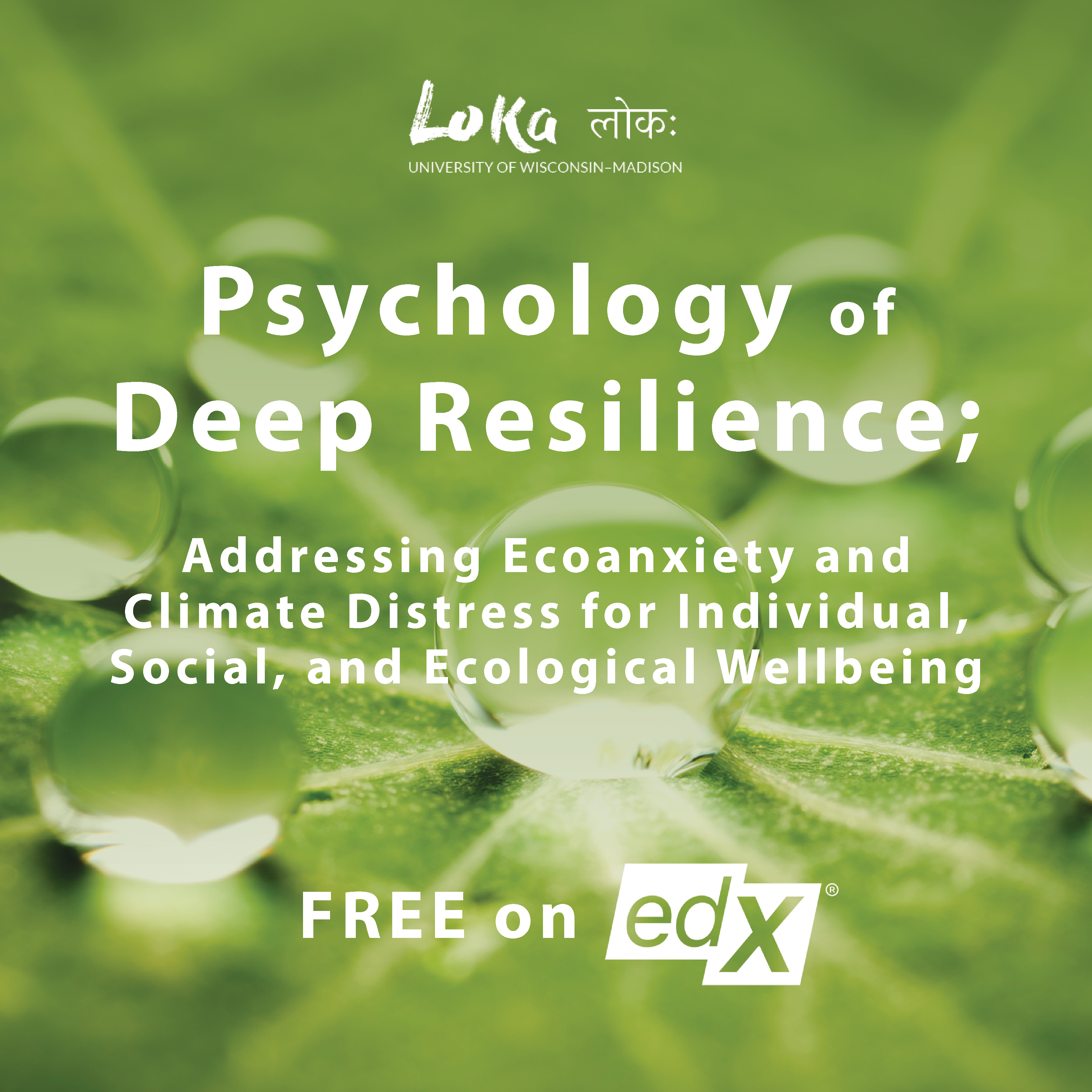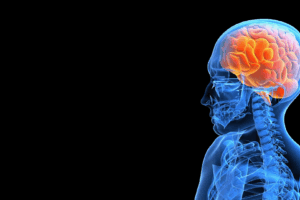The effects of environmental degradation and climate change are dire, and many of us feel uncertain what to do about it. If the current trajectory continues, we face a world of accelerated and intensified natural disasters, enormous loss of life and an increase in economic upheavals, health crises and political instability. A new, free 4-course program from the University of Wisconsin-Madison’s Loka Initiative and its partners, the Center for Healthy Minds, Nelson Institute for Environmental Studies and Continuing Studies, is designed to help participants meet this crisis with courage, determination, and a fierce reclamation of communal joy.
“Psychology of Deep Resilience” is a 4-course program that combines contemplative practices, activism, intersectional analysis, community-building and problem-solving skills to help participants face eco-anxiety and climate distress with joyful resilience. It is the first course of its kind to conceptualize “deep resilience” as the combination of psychological and emotional resilience with community and ecological resilience, and to provide a combination of contemplative and community building skills that address eco-anxiety, climate distress, and other environmental emotions.
Participants are introduced to key environmental and climate threats and their root causes, and through a justice framework, learn how these issues impact us emotionally, psychologically, and socially. The course combines contemplative practices with activities like writing and embodied exercises to enhance relationship building, and the strengthening of community ties.
Psychology of Deep Resilience was designed for those at the forefront of environmental and climate impacts, including youth, caregivers, and people from marginalized communities, but is accessible to everyone concerned about these issues. Specific goals of the asynchronous course program, which has no prerequisites and is freely available through the EdX online learning platform in 70+ countries, include:
To confront the deep uncertainty and disruption caused by the environmental and climate crisis with courage
To situate the root causes of environmental and climate crises through a justice lens and to apply systems thinking towards solutions
To investigate the emotional and psychological impacts caused by our concern and care for the Earth
To learn and apply well-being tools that are the most effective building blocks for individual, community, and planetary resilience

Instructors include Dekila Chungyalpa, environmental expert and Founder and Director of the Loka Initiative; Richard J. Davidson, world-renowned neuroscientist and the Founder and Director of Center for Healthy Minds, Paul Robbins, award-winning author and Dean of UW-Madison Nelson Institute for Environmental Studies, and over 30 other instructors and speakers, including contemplative practice leaders representing several wisdom traditions.
While caring about the planet and climate change can feel overwhelming, Chungyalpa hopes the course will provide participants with the tools they need to understand the issues we face, study the solutions that are required and build the skills to develop inner resolve and resilience. “Ultimately, this course is about action, training people to shift from learning to doing and from doing it alone to movement-building and community action,” she says.
Those interested in the 4-course program can sign up on the EdX platform (an app is available for those who wish to take the course by phone). Although EdX offers a paid “verified certificate” upgrade, each course is available at no cost by clicking on the individual course and following the free course check-out process. The course is asynchronous and will run continuously - there is no deadline to apply.





